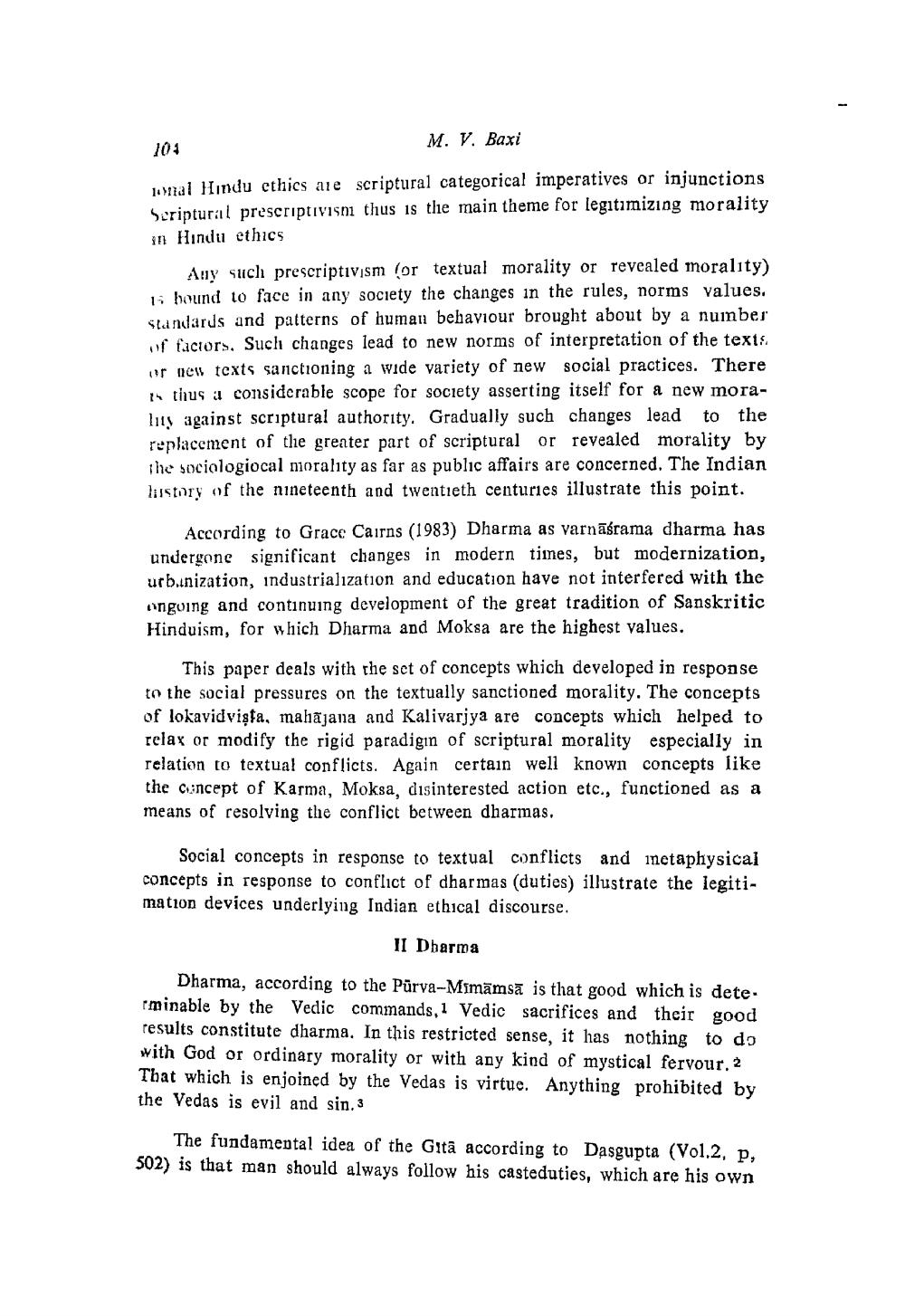________________
M. V. Baxi
104
1onal Hindu ethics are scriptural categorical imperatives or injunctions Scriptural prescriptivism thus is the main theme for legitimizing morality in Hindu ethics
Any such prescriptivism (or textual morality or revealed morality) 1 bound to face in any society the changes in the rules, norms values. standards and patterns of human behaviour brought about by a number of factors. Such changes lead to new norms of interpretation of the texts. or new texts sanctioning a wide variety of new social practices. There thus a considerable scope for society asserting itself for a new morality against scriptural authority. Gradually such changes lead to the replacement of the greater part of scriptural or revealed morality by the sociologiocal morality as far as public affairs are concerned. The Indian history of the nineteenth and twentieth centuries illustrate this point.
According to Grace Cairns (1983) Dharma as varnasrama dharma has undergone significant changes in modern times, but modernization, urbanization, industrialization and education have not interfered with the ongoing and continuing development of the great tradition of Sanskritic Hinduism, for which Dharma and Moksa are the highest values.
This paper deals with the set of concepts which developed in response to the social pressures on the textually sanctioned morality. The concepts of lokavidvista, mahajana and Kalivarjya are concepts which helped to relax or modify the rigid paradigm of scriptural morality especially in relation to textual conflicts. Again certain well known concepts like the concept of Karma, Moksa, disinterested action etc., functioned as a means of resolving the conflict between dharmas.
Social concepts in response to textual conflicts and metaphysical concepts in response to conflict of dharmas (duties) illustrate the legitimation devices underlying Indian ethical discourse.
II Dharma
Dharma, according to the Pürva-Mimamsa is that good which is dete. rminable by the Vedic commands, 1 Vedic sacrifices and their good results constitute dharma. In this restricted sense, it has nothing to do with God or ordinary morality or with any kind of mystical fervour, 2 That which is enjoined by the Vedas is virtue. Anything prohibited by the Vedas is evil and sin. 3
The fundamental idea of the Gita according to Dasgupta (Vol.2, p, 502) is that man should always follow his casteduties, which are his own




